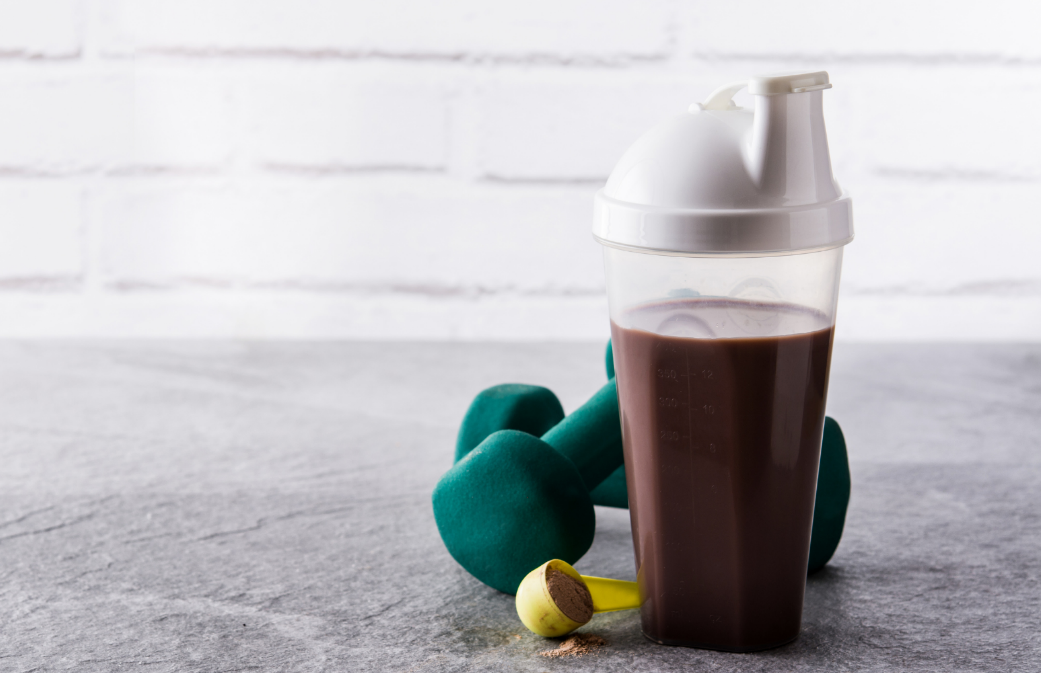Acne is a skin disorder that affects both teenagers and adults and is very frequent in both groups. Pimples are caused by the disease, and they appear mostly on the face and back, although they can also appear on the shoulders and chest. There are a variety of factors that contribute to blemished skin, including excessive activity of the sebaceous glands, genetic factors, and changes in hormone levels, such as those experienced after menopause.
Stress can also exacerbate the condition. Diet, particularly dairy products, might be a source of lesser-known triggers. They have been connected to the development of pimples and acne, but the nature of the connection is still up for debate. Today, in this article we will find out does whey protein cause acne? Whey protein, also known as casein protein or casein protein, is one of the most significant proteins found in dairy products.
In order to determine if there is a link between the consumption of (whey) protein and the development of pimples and acne, the following question must be addressed: Find out if consuming protein powder can cause acne and pimples, what you can do to prevent pimples from occurring, and if there is a way to consume protein powder without getting pimples in our guide to protein powder.
What causes skin flaws to appear?
Pimples appear when dead skin cells combine with excess oil produced by the sebaceous glands to form a pore. It is believed that this mixture induces oedema by clogging the pores of the skin. If bacteria colonize this mixture, it can result in swelling, inflammation, and pus development.
White blood cells kill the germs during this inflammation, which serves as a body’s natural defense against infection. This results in the formation of pus and the appearance of a pimple on the skin.
Does Whey Protein Cause Acne?
Normally, using protein powder does not result in the development of pimples. While some study has suggested a link between the use of dairy products (which typically includes the majority of protein powders) and the development of acne, these studies are still in their early stages. Furthermore, not all dairy products are associated with the development of acne.
Diet can have a significant influence in the development of acne or blemishes; dairy products are frequently identified as the primary reason. After reviewing multiple researches, it was discovered that milk consumption was significantly associated with the development and severity of acne in both adolescents and adults, as well as in children and adolescents.
These research, on the other hand, were observational studies, which indicates that they were unable to establish a cause-and-effect relationship. Certain studies included in this evaluation relied on self-reported data on dairy consumption and acne development, which may not have been completely accurate.
According to the findings of the studies, not all dairy products, such as yoghurt and cheese, were found to be associated with the development of acne. However, it has been demonstrated that the consumption of milk and dairy products promotes the production of a hormone that has been linked to the development of acne, namely insulin-like growth factor 1 (IGF-1).
What’s the connection between whey protein and pimples?
When it comes to milk, whey protein is one of the two main proteins found in it; the other being casein protein. Does whey protein cause acne? Whey is the liquid portion of milk that is deposited during the cheese-making process, and it is used to make cheese. The whey is subjected to a multi-stage filtering and drying process before it can be converted into whey protein. Whey protein powders are particularly popular among strength athletes, who prefer a high whey content. Its high protein content aids in the development and maintenance of muscular mass.
Given that whey protein is derived from milk and that there is a contentious link between dairy products and acne, many individuals assume that whey protein shakes are responsible for pimples or even acne breakouts. There have only been a few accounts of bodybuilders and strength athletes who have used whey protein supplements and developed acne as a result. However, these studies do not provide convincing data to support the allegation that whey protein powder promotes acne or pimples on the face.
Unlike a controlled study, these few case reports do not include a control group, which means that specific reasons for effects can only be demonstrated to a very limited level. In contrast to a controlled study, these few case reports include a control group.
Because of genetic reasons (many people who suffer from acne or blemished skin have a family history of the condition), certain people are more susceptible than others to develop acne when they ingest specific foods, such as the protein found in whey protein shakes. Additionally, oily skin, humid settings, hormonal imbalances, a lack of sleep, obesity, and diets high in fat and sugar are all related with an increased risk of acne development.
Acne and pimples caused by protein powder: Here’s What You Can Do About It!
Even if you don’t believe that your protein powder usage is to blame for your acne, you should review your diet to see if there are any other factors contributing to it. This is critical for maintaining a healthy complexion, which is why you should focus on eating a well-balanced meal plan. For example, the trace minerals zinc, iodine, and vitamin C can all aid to the maintenance of a youthful appearance.
Muscle-building athletes with sensitive skin who do not want to give up their protein shake should ensure that they eat only high-quality whey protein to avoid any allergic reactions. Making the switch to a protein powder derived from a plant-based protein source may also be beneficial.
Is it possible to consume protein powder without getting pimples?
Concerning the relationship between “protein shakes and acne,” the answer is dependent on the type of protein powder you drink and the quality of the powder.
Whey protein supplements are still widely used for muscle building; however, compounds known to cause acne, such as anabolic steroids or precursors of anabolic steroids, have been discovered in supplements, particularly those marketed to bodybuilders, and they have been linked to acne. The addition of components to food supplements that are not specified on the label is against the law, but it does happen. In order to make informed decisions about whey protein and other nutritional supplements, it is critical that you understand the constituents.
The two most common varieties of whey protein supplements available on the market today are whey concentrate and whey isolate, respectively. Because it is processed more thoroughly than whey protein concentrate, whey protein isolate has higher protein content, lower calories, and less lactose and fat than whey protein concentrate. Whey isolate is therefore an excellent choice for persons who are lactose intolerant because it contains no lactose.
As a result, whey protein isolate is more expensive than whey protein concentrate, which is a good thing. Although not lactose intolerant, whey protein concentrate can be used if you are not concerned with calories or are not concerned with the amount of lactose you consume. The third type of protein is whey protein hydrolysate, which is mostly used by professional athletes to build muscle.
The protein in this kind of whey has already been broken down into peptide chains by hydrolysis, allowing it to be absorbed by the human body more quickly than regular whey protein. So, to the question “Does whey protein cause acne,” the result is it depends.







